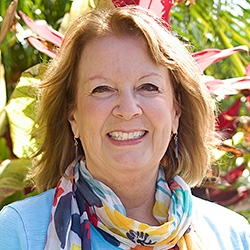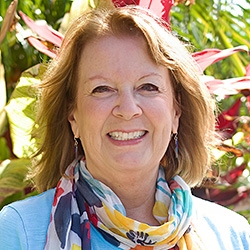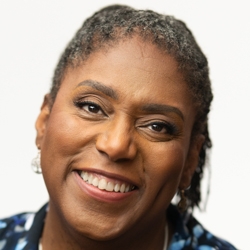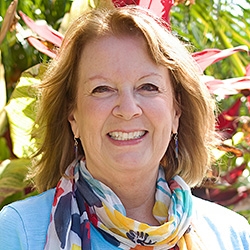

Search Results: choice
-
- 3 full-length courses to deepen your empathy practice
- Learn your body’s “language” and how to listen deeply to it
- Quickly reconnect and return to empathic presence when you are triggered
- Enhance your listening skills and experience greater ease and joy in all your interactions
-
Miki Kashtan shows how translating judgments into needs transforms family conflict and connection.
-
This explores four types of feedback: destructive, constructive, by demonstration, and dialogue.
-
Fear in dealing with a neighbor's 'wastebasket talk.' Only leaving or interrupting stops the flow.
-
The awareness and practice of interdependence is integral to holding an NVC consciousness. Practicing interdependence also means bringing in a quality of care in the moments we want to change agreements with others. This article talks about where our various choices, in regards to changing agreements, fits into different levels of engaging our interdependence.
-
During this session, Giorgos will walk you through a series of short, meditative practices and exercises designed to help you practice noticing, experiencing, and bringing shame to light — transforming it from a burden to a playful fellow as well as a portal to self-knowledge and internal freedom. You'll discover how the deep power of human connectedness can dilute the fogginess of sensitive issues, bringing them higher into your consciousness, and enabling the flow of life to pass right through them!
-
Trainer Tip: Discovering the unmet needs is only a starting point. The other part is to understand what it will take to meet that need, and make a request that will accomplish this. This way, we can resolve situations before they escalate. Everyone benefits when we are clear about what we would like.
-
Gain practical tools to lead from any seat, engage fear with clarity and step into everyday power.
-
Trainer tip: NVC focuses on shared human values and needs, and encourages the use of language that increases good will -- plus avoidance of language that contributes to resentment or lowered self-esteem. It emphasizes taking personal responsibility for choices and improving the quality of relationships as a primary goal. For today, focus on making observations without moralistic judgment in at least two of your interactions.
-
We can't alone (nor with lone communities) transform the hidden structures of violence and domination. Dialogue alone isn't disruptive enough. We can easily be in dialogue with Trump supporters while the planet burns up, millions are still hungry, and we go extinct. NVC seriously risks reinforcing vast inequities and abuses if we're not radically engaging systemic constraints, and impacts of our choices that go beyond our immediate circle. Read on for ways to leverage NVC practices to expand true social change.
-
Trainer tip: Be aware of times when you are judging others, demanding, making comparisons, or denying responsibility for your actions. Notice how these communication patterns affect your connection with other people.
-
Every one of us is impacted many times each day by micro-freezes that are the resulting fallout from both recent and long ago painful events. During this powerfully healing course, Sarah will walk you through a unforgettable tour of neuroscience, and succinctly demonstrate how NVC and neuroscience together can change your brain and enable your life to become both more fluid and far more resilient.
-
- Explore ways of parenting that will shape a future full of purpose and possibility
- Discover how your values can serve as a compass to guide you forward
- Understand the relationship between your present actions and desired outcomes
- Gain experience in balancing your child’s present needs with long term visions!
-
Trainer Tip: It can help us bring joy into our lives to connect to the needs we serve for doing things. While our activities may not always be fun, understanding their purpose and their value to our lives can help us shift the energy behind the action and have a more positive experience. Consider the underlying needs activities meet, and decide if they are worth it to you.
-
- Explore what makes the capacity lens radical and practical
- Understand the complexities of how capacity and willingness interface
- Mourn capacity limits within and around us without jumping to conclusions
- Orient to agreements as behavioral anchoring in support of your commitments
-
Stay grounded in uncertainty by focusing on present facts instead of future speculation.
-
Roxy Manning emphasizes positive relationships in parenting, highlighting acceptance, understanding, and compromise. She stresses the importance of being aware of one's needs, attuning to the other person's needs, fostering trust, and encouraging open communication, especially with children. The approach involves a balance between meeting both sets of needs for a healthier dynamic.
-
Uncover self-sabotage and release unconscious contracts through empathy and neuroscience.
-
Transform your life by aligning actions with values through NVC and somatic tools.
-
- Understand the dynamics of power struggles
- Explore practical strategies for navigating power imbalances
- Discover ways you can share power in various relationships
- Explore how NVC supports a move away from domination, into shared power
Quick Links

Stay in Touch!
We value your privacy, won't share your email address and you can easily unsubscribe any time.



















